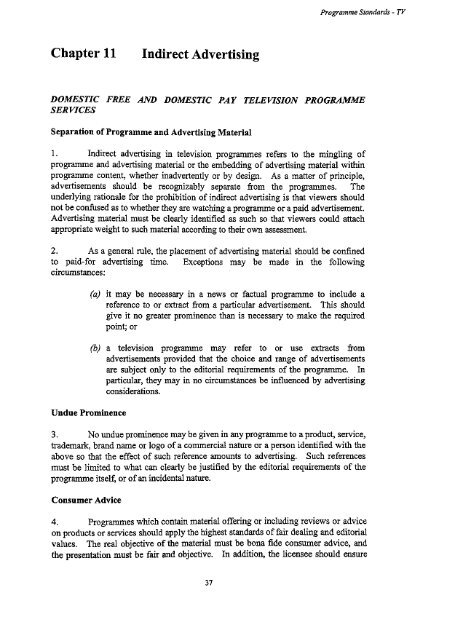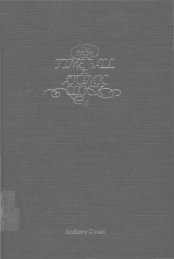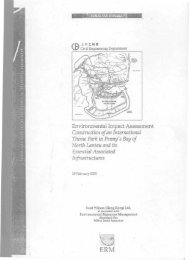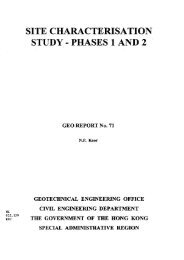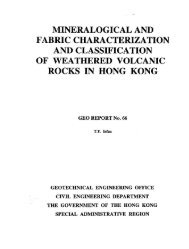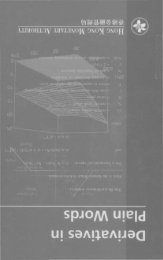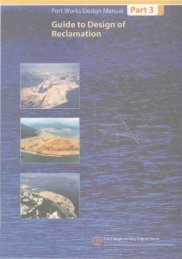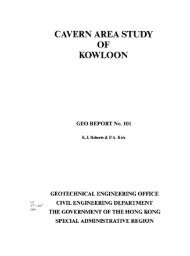(a) m - HKU Libraries - The University of Hong Kong
(a) m - HKU Libraries - The University of Hong Kong
(a) m - HKU Libraries - The University of Hong Kong
You also want an ePaper? Increase the reach of your titles
YUMPU automatically turns print PDFs into web optimized ePapers that Google loves.
Programme Standards - TV<br />
Chapter 11<br />
Indirect Advertising<br />
DOMESTIC FREE AND DOMESTIC PAY TELEVISION PROGRAMME<br />
SERVICES<br />
Separation <strong>of</strong> Programme and Advertising Material<br />
1. Indirect advertising in television programmes refers to the mingling <strong>of</strong><br />
programme and advertising material or the embedding <strong>of</strong> advertising material within<br />
programme content, whether inadvertently or by design. As a matter <strong>of</strong> principle,<br />
advertisements should be recognizably separate from the programmes. <strong>The</strong><br />
underlying rationale for the prohibition <strong>of</strong> indirect advertising is that viewers should<br />
not be confused as to whether they are watching a programme or a paid advertisement.<br />
Advertising material must be clearly identified as such so that viewers could attach<br />
appropriate weight to such material according to their own assessment.<br />
2. As a general rule, the placement <strong>of</strong> advertising material should be confined<br />
to paid-for advertising time. Exceptions may be made in the following<br />
circumstances:<br />
Undue Prominence<br />
(a) it may be necessary in a news or factual programme to include a<br />
reference to or extract from a particular advertisement. This should<br />
give it no greater prominence than is necessary to make the required<br />
point; or<br />
(b) a television programme may refer to or use extracts from<br />
advertisements provided that the choice and range <strong>of</strong> advertisements<br />
are subject only to the editorial requirements <strong>of</strong> the programme. In<br />
particular, they may in no circumstances be influenced by advertising<br />
considerations.<br />
3. No undue prominence may be given in any programme to a product, service,<br />
trademark, brand name or logo <strong>of</strong> a commercial nature or a person identified with the<br />
above so that the effect <strong>of</strong> such reference amounts to advertising. Such references<br />
must be limited to what can clearly be justified by the editorial requirements <strong>of</strong> the<br />
programme itself, or <strong>of</strong> an incidental nature.<br />
Consumer Advice<br />
4. Programmes which contain material <strong>of</strong>fering or including reviews or advice<br />
on products or services should apply the highest standards <strong>of</strong> fair dealing and editorial<br />
values. <strong>The</strong> real objective <strong>of</strong> the material must be bona fide consumer advice, and<br />
the presentation must be fair and objective. In addition, the licensee should ensure<br />
37


